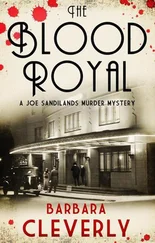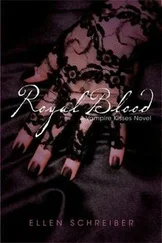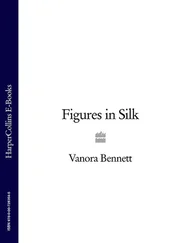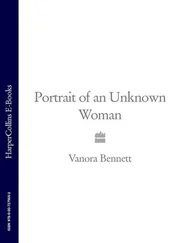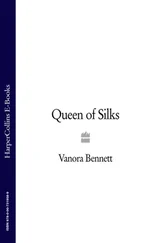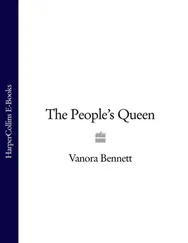It was sundown before Christine de Pizan got out to the palace gatehouse. She’d managed to persuade the Queen’s cook to part with some bits of meat and bread for the two youngest royal children, since their own cook was nowhere to be seen (which was unsurprising, perhaps; the children’s servants hadn’t been paid for two months, since the King’s latest bout of illness began, and you couldn’t rely on the Queen for anything). Suppressing the rage she habitually felt when she saw how that idle, self-indulgent Bavarian schemer let her own youngest son and daughter be neglected, Christine had tucked an unusually quiet Charles into bed. Catherine, she supposed, was still in the audience hall. She’d made Charles promise to save his sister some meat. Neither Christine nor the boy had had the heart to mention the proposed abomination of an English marriage that the Queen had just so shamefully accepted.
Christine was really only supposed to read with the Prince and Princess – to guide their minds. That was a natural appointment for someone who’d written as much as she had, to the acclaim of all Europe, about how princes should be educated. But, whenever their father was in the grip of his demons, Christine also found herself going every day to the Hotel Saint-Paul, the garden palace their grandfather had built just inside his new city walls, to the cobwebby children’s annex and their mother’s overheated, parrot-filled, sweetmeat-loaded quarters, where Christine’s only role was to play nursemaid-cum-mother: making sure they had enough to eat, and clothes to wear. It wrought havoc on her concentration and disrupted her writing and the direction of her manuscript-copying workshop. But how could she do anything less? She was grateful to poor, kindly, afflicted King Charles for letting her live out her life in France – she’d had no desire, when she was widowed, to go back to Venice – and for showing her such favour over the years. And she felt sorry for him, in his troubles, and sorry for the children too. So quiet, the pair of them, as if neglect had withered their tongues (though Christine had noticed that Catherine, at least, was now becoming resourceful enough to marshal what she needed in the way of food and friends even without words; using the wistful looks and ways of a girl coming to her adult beauty to charm the people she needed. And she’d risen to the occasion today, all right, with a quip that had pleased everyone).
But this wasn’t the time to worry about little Charles and Catherine. All Christine had time to feel now was anxiety on her own account. She whisked her wiry body briskly towards the head guard. How had it got so late? Outside the Hotel Saint-Paul, she could already see a glitter of red on the river, up past the Island and the old royal palace and Notre Dame Cathedral. Night was dangerous. The men were ready to close the gatehouse, locking the inhabitants inside for safety.
‘You’re late,’ one of them said roughly to her.
‘It’s only ten minutes’ walk to my house,’ she said firmly back. ‘You know I live just nearby.’
The man shook his head doubtfully. They all knew the figures: ten bodies a night delivered to the morgue at the Louvre. Ten throats cut on the streets after honest folk were supposed to be inside and asleep. Paris was a frightening place these days, even now, when things were relatively quiet.
‘I have to get home,’ she said. ‘I have children. Grandchildren. Work.’ She gestured down at her simple blue gown and laughed reassuringly, giving them her most flirtatious smile. It was always best to use charm first, before letting the man know she meant business. Her smile had always melted hearts. ‘I don’t look worth robbing. You can see that. I’ll be all right.’ She wished the man would hurry and make his mind up to let her go. She didn’t want to be out at night either.
Suddenly the guard nodded, as if he’d just seen a way of killing two birds with one stone. ‘We’ve got an Englishman here who needs a bed for the night,’ he said. ‘I’ll let you out if you put him up. He’ll keep you safe.’
It would be crowded, but if they’d let her out she’d find a corner for a guest. Even an Englishman. She nodded. Brisk with relief, the guard whistled out a mule and handed her on to it. Christine recognised the young man holding the harness. He was tall but still hardly more than a boy – the black-haired page, or aide, or whatever he was, who’d held open the casket while the Duke of Clarence gave Princess Catherine her jewel. He had a big pack on his back and was wrapped, ready to go, in a cloak too heavy for the mild evening weather. He gave her a small, shy smile. He wouldn’t save her from any footpads, she saw. But at least he’d be no trouble.
She noticed the boy moving his head to stare at everything they passed. He stared at the great paved sweep of Saint Anthony Street, where fruit blossoms peeked over the walls of the Duke of Orleans’ home and the convent of Saint Catherine of the Schoolboys. Once inside the Saint Anthony gate, when they turned away from the river into narrower streets, where the paving stones stopped and the sound of the mule’s hoofs was muffled by ankle-deep filth, he gazed at the pink blossom waving over the King of Sicily’s home on one side and Little Saint Anthony convent on the other.
At first she thought he was scared, and listening for footsteps. She was, though she’d have died before admitting it. They passed the crowded space of the Jews’ road on one side, and more walls swaying with pink and white clouds, with more slender towers and spires rising behind the wafts of flowers, then came up to the Bishops of Beauvais’ hotel. As they reached the crossroads, she looked straight at him to show him he had to turn the mule’s head to the left here, and she realised, from the alert, curious, joyful look on his face, that he wasn’t scared at all. He was just drinking in every detail of their surroundings. From the slightly raised ground here, you could see down to the Greve port. You could see the top of the crane that was used for unloading hay bales and the last speckles of glitter on the river. You could see the double towers of the cathedral, the turrets of the palace, and the dark green of the bare vineyards on the slopes of the Left Bank, with the University and church buildings scattered behind them up the hillsides, silhouettes in the dusk.
Because she was suddenly seeing it through his newcomer’s eyes, the sight humbled and amazed her as it hadn’t for years. She hardly ever remembered any more even what had made her write, in one of her most famous books, about the experience of coming here from Venice as a child, and about the extraordinary impression that her first months in Paris had made. She’d forgotten the beauty she lived amidst. These days, all she thought about in these streets was the troubles they all lived with. But look at this boy, staring. Paris must still be a dream, a miracle, to anyone who’d never seen or imagined two hundred thousand people living, working, singing, praying and thinking together.
‘I had no idea,’ the boy said, turning frank eyes to her, ‘no idea it would be like this.’ His French was accented but fluent. Taken aback by his warmth and openness, she almost smiled.
A dog barked somewhere near; something creaked. She jumped. There was no point in getting your throat cut just for the joy of exchanging pleasantries with an Englishman, she told herself. ‘Come on,’ she said gruffly. ‘Let’s get you inside.’
It was so dark by the time they stopped in Old Temple Street that they had to bang at the locked courtyard gate, and when Jean came out to let them in, he was carrying a lantern.
‘We were worried,’ he said, not noticing the visitor at the head of the mule, coming straight to her and slipping her off its back. His voice was quiet but she could feel the tension vibrating in it.
Читать дальше



